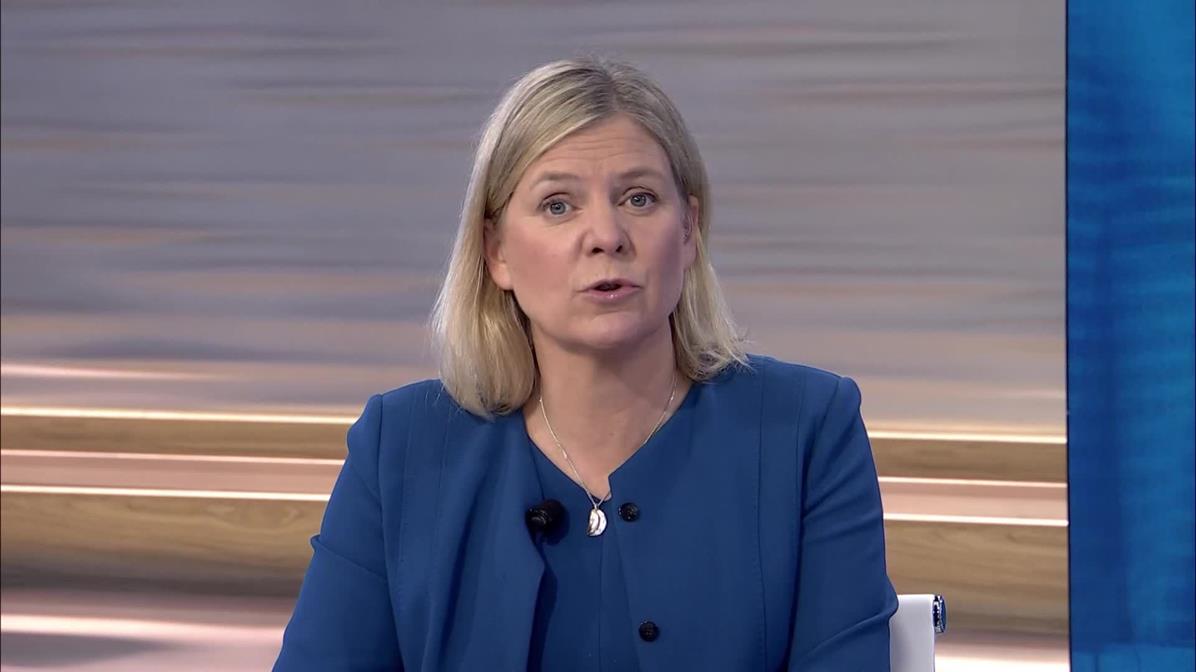IMF / IMF Managing Director and IMFC’s Chair Press Briefing

The IMF’s Managing Director Kristalina Georgieva and Magdalena Andersson, the chair of the International Monetary and Financial Committee, the body that supervises the IMF’s work, held a press briefing today (Thursday, October 14) where Andersson encouraged the multilateral leaders task force to accelerate access to vaccines and to facilitate coordination among international partners, which includes mobilizing critical financing. She added that the IMFC agreed to take steps to reach the global vaccination goals of vaccinating at least 40 percent of the population in all countries by the end of 2021 and 70 percent by mid-2022 and to channel IMF Special Drawing Rights from the recent $650 bn allocation to low and vulnerable middle-income countries on voluntary basis.
“Today we agreed to channel this special drawing rights on a voluntary basis to the benefit of low and vulnerable middle-income countries. We committed to significantly scaling up the Poverty Reduction and Growth Trust, and this is a critical source of IMF financing to the poorest countries. And the IMFC also expressed support for establishing a resilience and sustainability trust. The purpose will be to provide much needed financing to vulnerable members to reduce risks, including those related to climate change and pandemics. The IMF will collaborate closely with the World Bank in developing and implementing this trust, and we agree that health care and support to the most vulnerable groups should remain priorities,” said Andersson.
Georgieva emphasized that the voluntary allocation of Special Drawing Rights from countries with strong external positions to countries in greatest need is a historic opportunity to transform economies to make them stronger, greener, fairer.
“Now we have a historic opportunity and a collective responsibility to make the most of this allocation. Countries are already putting the new SDRs to good use boosting reserves, creating space for spending on vaccines on the lifelines for vulnerable households. The key is to use SDRs wisely, to use them transparently, to be accountable to the citizens and to the global community. With the support of the IMFC, we are calling on countries with strong external positions to voluntarily channel their SDRs, as we heard from the chair, so that more SDRs go to those countries most in need for them. This could make all the difference and we heard it from countries that are struggling on the losing end of this divergence,”
On supply chains, Georgieva added that disruption happens when demand jumps up and supply is slow to catch up. But there is a more fundamental problem, which is the growing divergence between countries that recovering strongly and those that are falling behind.
“We recognize that when there is mismatch between demand jumping and supply not being able to catch up, that puts pressure on prices, and this is why the issue of addressing divergence is important, as is addressing the bottlenecks that are created as a result of some parts of the economy recovering faster than others. This is why we think it is transitory, but we are watchful. We are going to be very vigilant because there are other factors that could put pressure on prices, for example, climate shocks. We have seen that in the past, and we know that to be watchful means central banks to do what they’re so good at. Identify where the inflation expectations are headed and should they be unanchored to take appropriate actions I was very impressed to hear central bankers and finance ministers having a very deep, comprehensive discussion on this topic,” said Georgieva.
To watch the full event, click here.





